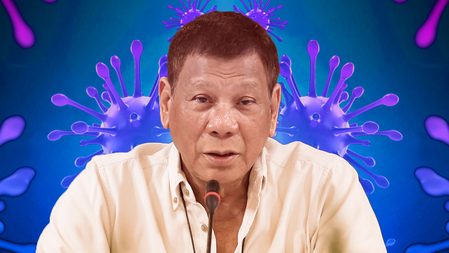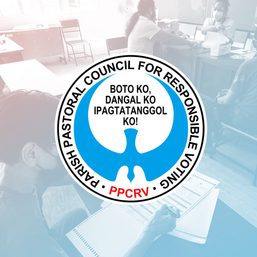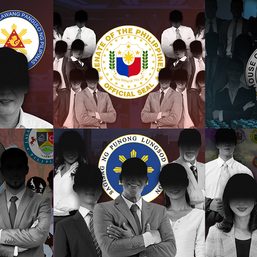SUMMARY
This is AI generated summarization, which may have errors. For context, always refer to the full article.
![[OPINION] Public opinion polls: Trust and approval](https://www.rappler.com/tachyon/2021/02/trust-opinion-survey.jpg)
For several years now, SWS and AIM, with support from the Konrad Adenauer Foundation, have been launching a Grand Tour at the beginning of the year. The Tour revisits the SWS surveys done in the preceding year, relating them to earlier records in its growing data base, to underline patterns of continuity and change in public opinion, and to anticipate the issues likely to dominate the SWS agenda as it moves forward.
Not surprisingly, the Tour highlighted the impact of the COVID-19 pandemic, which began to make headlines in January 2020 and established a 12-month footprint in the media. Surveys can enlighten public and private institutions on the issues that their constituencies face in coping with COVID-19. Information on what people fear and need most in the season of the pandemic; their experience with lockdown restrictions; and their receptiveness to vaccines would help improve their assistance programs.
The pandemic that has made surveys more important has also made its conduct more difficult. Health and mobility concerns reduced the availability of SWS field personnel and their physical access to respondents, and forced the recourse to mobile phone surveys (MPS). While a legitimate and valid process, the MPS was a second-best option that had to concede to its limitations, including the “telecom barriers” encountered by interviewers: non-functioning numbers; busy signals or interminable ringing; and immediate hang-up.
The fragile telephone connection reduced the survey interview from 60 to 20 minutes, which necessarily meant trading off the number of issues to take up and the comprehensiveness of their coverage. It denied interviewers the visual evidence of their respondents’ homes and furnishings, and the insights this provided into their economic status. It raised the question of whether the cell phone was sufficiently affordable enough to the E economic sector that this sector could be adequately represented in the survey.
Perhaps MPS raises other issues as well. Does the dependence on a sampling data base of willing repeat respondents raise or reduce the risk of compromising confidentiality? Does the absence of cues available in a face-to-face interview make it easier for respondents to evade questions or hedge their answers? To what extent might the MP mode affect our confidence that the responses of interviewees honestly reflect their real sentiments, which is always an issue in opinion polling surveys?
Notwithstanding these reservations, SWS deserves commendation and thanks for continuing its work. The review conducted by the 2021 Grand Tour revealed no contentious or even seriously surprising findings. Fear of the pandemic had caused great anxiety among the public (89%) and made life more stressful (89%). But there was general public confidence by September 2020 on the imminent and widespread distribution of the COVID-19 vaccine (within 12 months, according to 80% of respondents) and the view that the country had survived the worst of the pandemic (70%). Given subsequent evidence of viral mutations, the optimism was perhaps, somewhat premature.
In one of Sherlock Holmes’ cases, the clue that led the master detective to the criminal was a dog that did not bark. Arguably, the most surprising feature of the 2021 Grand Tour was what it omitted from the itinerary — the trust and approval rating of the president and high government officials. The omission was noteworthy because it deviated from the standard SWS template to which its faithful followers have become accustomed. Second, the silence on the question of trust and approval was particularly eloquent at this time, when the country is gearing up for elections in which the incumbent, although no longer qualified to run for a second term, will still play a major role and in which other currently serving officials will probably be candidates.
In a recent PDI column, SWS Chair Mahar Mangahas noted that “the ability to predict elections has been the litmus test of the quality of opinion polling,” a third reason for regretting the absence of the trust and approval milestones of the Tour. The trajectory of trust and approval scores provides a basis for the public to judge the performance of public opinion polling institutions on the litmus test.
Admittedly, the issue of trust and approval ratings has become perplexing and contentious in recent years. Questions were raised on the difficulty of reconciling the high trust and performance scores respondents gave President Duterte with the equally high scores they gave against the policies that he pursued, notably the killing of suspected drug pushers and the refusal to assert Philippine rights over its EEZ and its maritime claims in the South China Sea.
The puzzlement connects to more fundamental questions about public opinion polling. Where do respondents get their information? What and who influences their views? How do they form their opinions? These questions are not new. But the environment in which we must now try to answer them has radically changed. We now live in an age of Facebook and social media, automated algorithms and troll armies and disinformation campaigns, a world where it has become common for partisan groups to offer not just alternative views but alternative facts.
Do survey respondents ever get to see the results of the surveys in which they have participated? And what was their response to the findings? If they have shared their genuine sentiments, they would be relieved that so many share their views. If they have disguised their opinions, would they feel disquieted that they were out of step with the majority? Or dismayed that so many others might have felt the pressure they did to dissemble?
Election season is high season for marketing agencies and commissioned public opinion polling services. Vested groups will doubtless conduct and propagate surveys that promote their interests. The suspicion that surveys can be manipulated to reach pre-ordained conclusions should make the public more cautious about automatically swallowing their results.
While it’s disappointing not to get the SWS analysis of trust and approval in the 2021 Grand Tour, it was, perhaps, prudent to delay these trust and approval surveys until the SWS can develop a more robust framework. – Rappler.com
Edilberto C. de Jesus is professor emeritus at the Asian Institute of Management and a Senior Research Fellow at the Ateneo de Manila University School of Government.
Add a comment
How does this make you feel?





![[PODCAST] Beyond the Stories: Ang milyon-milyong kontrata ng F2 Logistics mula sa Comelec](https://www.rappler.com/tachyon/2021/11/newsbreak-beyond-the-stories-square-with-topic-comelec.jpg?resize=257%2C257&crop_strategy=attention)
![[WATCH] In The Public Square with John Nery: Preloaded elections?](https://www.rappler.com/tachyon/2023/04/In-the-Public-Square-LS-SQ.jpg?resize=257%2C257&crop=414px%2C0px%2C1080px%2C1080px)
![[Newspoint] 19 million reasons](https://www.rappler.com/tachyon/2022/12/Newspoint-19-million-reasons-December-31-2022.jpg?resize=257%2C257&crop=181px%2C0px%2C900px%2C900px)

![[OPINION] The long revolution: Voices from the ground](https://www.rappler.com/tachyon/2022/06/Long-revolution-June-30-2022.jpg?resize=257%2C257&crop=239px%2C0px%2C720px%2C720px)
![[OPINION] I was called a ‘terrorist supporter’ while observing the Philippine elections](https://www.rappler.com/tachyon/2022/06/RT-poster-blurred.jpeg?resize=257%2C257&crop_strategy=attention)
There are no comments yet. Add your comment to start the conversation.